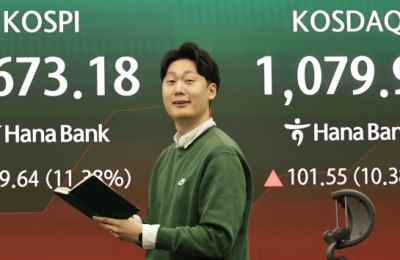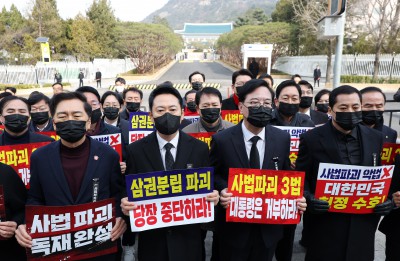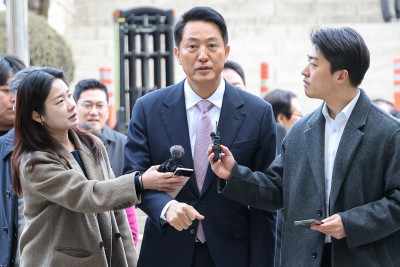9. Strengthening the existing practices of public debt management is an important means of achieving more resilient public finances. We welcome the intention of the IMF and the World Bank to review and update the “Guidelines for Public Debt Management” in light of the experience to date. We look forward to a progress report to the Leaders’ Summit in September and initial suggestions for updating the Guidelines by our October meeting. We also call on the OECD for an interim report on its update of OECD leading practices for raising, managing, and retiring public debt, including on state guarantees, by our next meeting.
10. Events in the past years have shown the importance of debt sustainability for all countries. We, therefore, endorse continued attention to this issue in the activities of the IMF and the World Bank and confirm our support for the implementation of the IMF – World Bank Debt Sustainability Framework for low-income countries in order to promote sustainable financing and sustainable growth. Successful implementation of the HIPC Initiative and MDRI, stronger policies, and improved economic prospects have helped expand and diversify external financing opportunities for low-income countries, which they can usefully employ to increase their growth potential. However, unless new financing and borrowing are undertaken prudently, new risks may emerge. We, therefore, ask the IMF and the World Bank to continue assisting low-income countries at their request in developing prudent medium-term debt management strategies and enhancing their debt management capacity. To better inform our practices, we will also take into consideration the IMF-World Bank Debt Sustainability Framework for low-income countries. We agree that further inclusive discussions with low-income countries are needed on these issues.
11. Regional Financing Arrangements (RFAs) can play an important role in the existing global financial safety net. In Cannes our Leaders adopted common principles for cooperation between the IMF and RFAs. We reaffirm these principles, as well as the importance of safeguarding the mandate and independence of the respective institutions. Recognizing recent work undertaken in this area by both the IMF and G20, we look forward to a flexible and voluntary dialogue between the IMF and RFAs on an ongoing basis through well-established communication channels. We also take note of the importance of a dialogue among RFAs to foster an informal exchange of views and experiences in a flexible and voluntary way.
12. We note the work undertaken by the IMF and BIS in developing indicators that reflect global liquidity conditions, looking both at price and quantity-based measures. We call on the Fund to carry out further research with a view to develop proposals on how to incorporate global liquidity indicators more broadly into the Fund's surveillance work.
13. We reiterate that effective local currency bond markets (LCBMs) play an important role in improving the resilience of the domestic economy and financial systems. We welcome the preparation by international organizations (IOs) of the LCBM Action Plan Implementation Report, which describes the efforts taken to improve the coordination of technical and advisory assistance for LCBM development. We welcome the Diagnostic Framework on LCBM prepared by the IMF, the World Bank Group, the EBRD and the OECD
as part of the Action plan. We look forward to annual review by IOs of developments in LCBMs in light of their contribution to financial stability and better capital flow management. We encourage IOs, other technical assistance providers, and country authorities to consider the use of the Diagnostic Framework in identifying and setting reform priorities in support of LCBM development.
14. We reiterate our commitment to contribute to a successful International Development Association (IDA) 17 replenishment, as well as African Development Fund (AfDF) 13 replenishment.
Financing for Investment
15. We reiterate the importance of long-term financing for investment, including in infrastructure and SMEs, for sustainable growth and job creation. We endorse the work plan, prepared by the Study Group, and welcome the contributions of the international organizations that helped us to assess factors affecting the availability and accessibility of long-term financing for investment, including in infrastructure and for SMEs. In this regard, we welcome the “High-Level Principles of Long-Term Investment Financing by Institutional Investors” elaborated by the OECD in consultation with the G20 members and call on the OECD to identify approaches to their implementation in consultation with participants. We look forward to future contributions by IOs which aim to assist countries in facilitating and promoting long-term investment. We look forward to the FSB’s ongoing monitoring of the impact of financial regulatory reforms on the supply of long-term investment financing.
16. We will undertake further work on measures to facilitate greater intermediation of global savings to generate long-term financing for productive investments, including in infrastructure. We will explore how private sources of financing and capital markets can be better mobilized. We also look forward to building on the ongoing work of the MDBs to develop new approaches in order to optimize the use of their existing resources, including through leveraging private capital, and to strengthen their lending capacity. We take note of the work underway respectively at the World Bank Group and at the regional banks to mobilize and catalyze financing for infrastructure investment, particularly in emerging markets and developing countries. Our efforts to address global infrastructure gaps will focus on the areas with considerable needs, including the power and energy sector in Sub-Saharan Africa.
17. We recognize the paramount importance of the investment climate in attracting long-term financing. Accordingly, in identifying impediments to the mobilization of private capital, we will take a comprehensive approach, which includes financing for infrastructure and SMEs. In this regard, we are committed to taking further actions to improve investment conditions. Furthermore, improving processes and transparency in relation to the planning, prioritization and funding of investment projects, especially in infrastructure, remains essential. Particular attention will also be given to approaches to improve the design of public- private partnership (PPP) arrangements
Addressing Base Erosion and Profit Shifting (BEPS), Tackling Tax Avoidance, Promoting Automatic Exchange of Information, and Fighting Non-cooperative Jurisdictions
18. Ensuring that all taxpayers pay their fair share of taxes is a high priority in the context of fiscal sustainability, promoting growth, and the needs of developing countries to build capacity for financing development. Tax avoidance, harmful practices and aggressive tax planning have to be tackled. The spread of the digital economy also poses challenges for international taxation. We fully endorse the ambitious and comprehensive Action Plan submitted at the request of the G-20 by the OECD aimed at addressing base erosion and profit shifting (BEPS) with a mechanism to enrich the Plan as appropriate . We welcome the establishment of the OECD/G20 BEPS project and encourage all interested countries to participate. We look forward to regular reporting on the development of proposals and recommendations to tackle the 15 issues identified in the Action Plan and commit to take the necessary individual and collective action with the paradigm of sovereignty taken into consideration. We acknowledge that effective taxation of mobile income is one of the key challenges. Profits should be taxed where functions driving the profits are performed and where value is created. In order to minimize BEPS, we call on member countries to examine how our own domestic laws contribute to BEPS and to ensure that international and our own tax rules do not allow or encourage multinational enterprises to reduce overall taxes paid by artificially shifting profits to low-tax jurisdictions.
[뉴스핌 Newspim] 김동호 기자 (goodhk@newspim.com)























